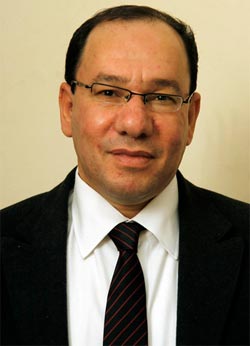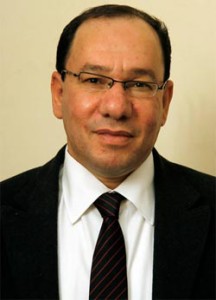Middle East Monitor
Wael Qandil
You don’t have to let your imagination go far or even delve deep into the world of conspiracy theories to see that there appears to be an organised movement of counter-revolutions in the Arab world. You will not have departed too far from the truth if you were to believe that the remnants of the old regimes each now have a counter-revolutionary movement that brings down Arab revolutions under the false pretext that they are sympathetic to the Muslim Brotherhood. These counter-revolutionaries act will full confidence, almost as if there is an international system that supports and backs them in every step that they take and provides them with an organisational framework.
From the counter-revolution that is in sync with the military coup in Egypt; to the “Haftarian” experiment against the Libyan revolution; to the interruptions in both the Tunisian and Moroccan experiences; and even the skirmishes within the Turkish context, one finds that there is a barely visible thread that seeks to link all of these activities via an international counter-revolutionary movement. Interference in the revolutions is often carried out by international and regional sponsors.
On our television screens we see the same citations about how Islam threatens the modernisation of the state; clichés about changing the identity of the nation, the prohibition of art and cultural production; and, of course, threats to trap women inside the niqab. The alleged “threat of political Islam” floods our media platforms as if one person or one source has taken over the unravelling of the story and dictated the script and dialogue we use to discuss these new events. It is as if one person has taken it upon himself to direct this drama without bothering to change the décor as we shift from one scene to the next.
In Morocco, the government pre-empted the wave of the Arab Spring by carrying out a number of radical changes and reforms within the governing system. I spent three days there during that time during which I met with different factions and classes of Moroccan people. At that time, everyone was asking the same question: why do counter-revolutions always come back with such ease? This question was posed during a conversation with Abdelfattah Mourou, vice president of the Tunisian Nahda movement, Mr Kamal Khatib of the Islamic movement in the occupied West Bank, and other Moroccan intellectuals and politicians.
It was agreed between us that “negligence” is what caused the Arab Spring’s unfortunate fate and, as such, it could be argued that some of these revolutionary systems voluntarily committed suicide when they gave into the demands of other factions by leaving room for division to occur. Our brothers in Morocco have tried to find excuses for the government following the revolution in Egypt and they have done so by claiming that no one could have imagined the level of deception that followed the Egyptian revolution. They also argue that they have learnt quite a bit from the hijacking of the Egyptian revolution and the success of the Turkish model, and have also had their eyes opened to their own experience as well as that in Tunisia in order to prevent a repeat of the Egyptian and Libyan scenarios.
In reality, my conversations with the Moroccan youth revealed that the events in Egypt are affecting the democratic experience in Morocco, almost as if it were the result of sympathy or being overly cautious. I even read newspapers that expressed sentiments of animosity that mirrored pre-coup Egypt in June 2013.
Indeed, some voices even expressed beliefs that the Justice and Development Party in Turkey (AKP) is the same as ISIS, not least in its alleged desire to prevent artistic and cultural expression and production. The people fear that through this prohibition, Islamic movements will destroy the planet. While it is true that the democratic reforms in Morocco were not the result of the Arab Spring or a revolution, it can still be said that the reforms package implemented by the government in Rabat was a silent spring in its own right.
Translated from Al-Araby Al-Jadeed








